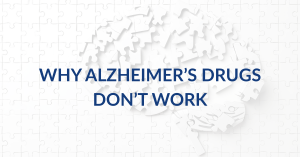The keto diet often comes up in my content because it offers many health benefits for mental disorders. These include help for Alzheimer’s disease, epilepsy, Parkinson’s disease, diabetes, and more. It may also benefit mental health disorders. While diet plays an important role in preventing and treating various conditions, it’s exciting to see a growing focus on how nutrition affects mental health, especially during challenging times.

Researchers at Oxford University, Stanford University School of Medicine, and Harvard Medical School recently published a review in Current Opinion in Endocrinology, Diabetes, and Obesity titled “Ketogenic diet as a metabolic treatment for mental illness.” The review explores how psychiatric illnesses like schizophrenia, bipolar disorder, major depressive disorder (MDD), and binge eating disorder share underlying mechanisms. These mechanisms may respond positively to a ketogenic diet.
The four shared mechanisms are:
- Glucose hypometabolism
- Neurotransmitter imbalances
- Oxidative stress
- Inflammation
Let’s examine how a ketogenic diet can address each of these mechanisms.
Glucose Hypometabolism
“Hypo-” means “below” or “less than normal,” so glucose hypometabolism refers to reduced glucose metabolism. This condition in the brain is common in neurological diseases such as Alzheimer’s, Parkinson’s, and epilepsy. It is also present in mental illnesses like schizophrenia, bipolar disorder, and MDD. Interestingly, in the brains of schizophrenia patients, researchers discovered an increase in a ketone importer. This finding suggests the brain may attempt to compensate for reduced glucose metabolism by increasing ketone uptake.
Neurotransmitter Imbalances
Neurotransmitters are chemicals that allow neurons to communicate. Psychiatric illnesses and neurological diseases often involve imbalances in neurotransmitters such as glutamate and gamma-aminobutyric acid (GABA). Glutamate stimulates nerve impulses, while GABA inhibits them. Abnormal GABA/glutamate ratios or excessive glutamate levels, known as excitotoxicity, can damage brain cells. Ketogenic diets have been shown to correct these imbalances and reduce glutamate excitotoxicity.
Oxidative Stress
Oxidative stress occurs when reactive oxygen species overwhelm the body’s antioxidant defenses, causing biological damage. It contributes to many chronic and neurological diseases, including schizophrenia, bipolar disorder, and MDD. Ketogenic diets reduce oxidative stress by altering metabolism. They decrease pro-oxidant factors and boost antioxidant defenses, providing neuroprotection.
Inflammation
Inflammation plays a role in numerous health conditions. In the brain, it is associated with degenerative diseases like Alzheimer’s and Parkinson’s and with mental illnesses. Studies confirm increased inflammatory markers in the brain and cerebrospinal fluid of patients with psychiatric disorders. Immune cells called microglia, which can cause inflammation, also contribute to schizophrenia, bipolar disorder, and MDD. According to the review, ketogenic diets can shift microglia from a pro-inflammatory state to an anti-inflammatory, neuroprotective state.
Evidence from Studies and Case Reports
The review highlights evidence from animal studies and human trials showing the positive effects of ketogenic diets on mental illnesses. These include ADHD, autism spectrum disorder (ASD), anxiety, MDD, bipolar disorder, schizophrenia, and binge eating disorder. Researchers believe favorable changes in the gut microbiome may mediate these benefits.
The authors also share two case series demonstrating remarkable clinical improvements. The first series involved two patients: one with a 53-year history of schizophrenia and another with depression and schizophrenia lasting over 20 years. Both patients experienced noticeable improvements within weeks. Eventually, they became symptom-free and stopped all psychiatric medications.
The second case series featured three patients with severe binge eating, food addiction, and obesity. After following a ketogenic diet, their binge eating decreased significantly. They also lost weight and reported improvements in depressive symptoms.
The Promise of Ketogenic Therapy
Further research is needed to better understand how ketogenic diets impact mental illnesses. However, this review provides valuable insights into psychiatric conditions and potential treatment approaches.
The authors note:
“Mental illnesses are not as biopathologically distinct from other chronic diseases as most people assume… It is important that researchers and clinicians are made aware of the trajectory of the evidence for the implementation of ketogenic diets in mental illnesses, as such a metabolic intervention provides not only a novel form of symptomatic treatment, but one that may directly address the underlying disease mechanisms and, in so doing, also treat burdensome comorbidities.”
While pharmaceuticals may manage symptoms of mental illnesses, this research offers a promising new therapy. A ketogenic diet may provide a powerful approach to treating some of the most challenging psychiatric disorders.



